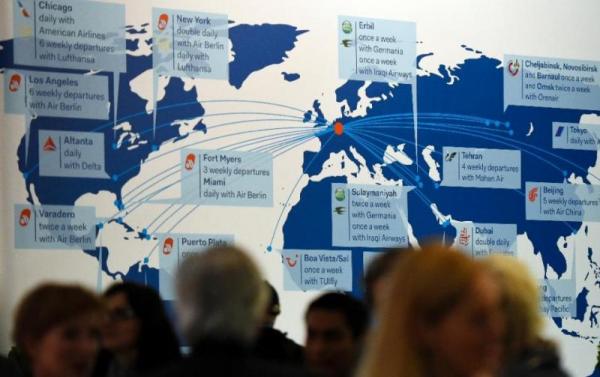AFP by Marie Julie March 7, 2015
Berlin - - The impact of the deadly Ebola virus fell mainly on three African countries but tourism has taken a hit across the continent of more than 50 nations as fear has kept many visitors away, tourism chiefs say.
Visitors pass by a poster of flight route information at the 49th International Tourism Fair (ITB Berlin 2015) in Berlin on March 4, 2015 (AFP Photo/Tobias Schwarz)
Some 56 million tourists visited Africa in 2014, a two-percent rise from the previous year, according to UNWTO figures, but growth in Africa lagged behind that in Europe, Asia or the Americas.
Africa had seen a robust 4.8-percent increase in tourists a year earlier.
"Africa... did well (last year) in spite of suffering from the Ebola symptoms which were associated unfairly" with Africa as a whole, Taleb Rifai, head of the UN World Tourism Organization (UNWTO), said at the Berlin tourism fair (ITB).
He said Africa needed support, especially after the Ebola crisis, adding: "It was very unfair the generalisation that happened."
Recent Comments